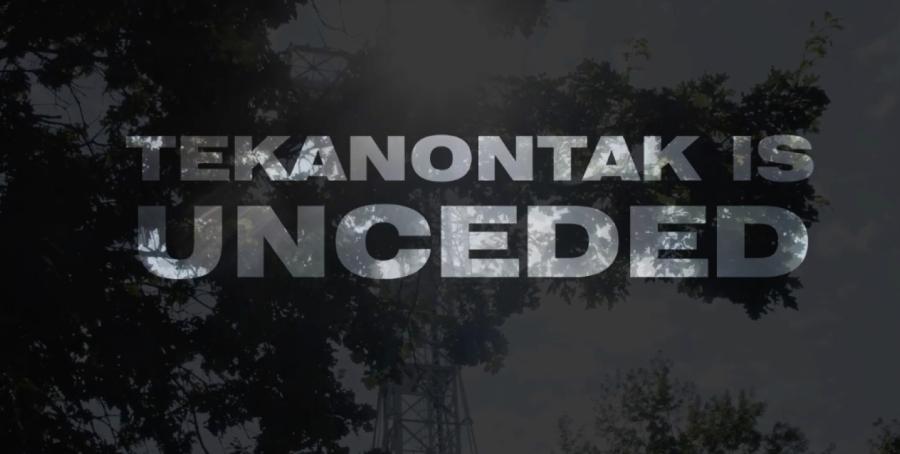On November 12th, 2010, the Canadian government endorsed the United Nations Declaration on the Rights of Indigenous Peoples. We urge the government to move ahead with the implementation of its provisions in a principled manner that fully respects their spirit and intent.
The Declaration is more than an aspirational instrument. Governments, courts and other domestic and international institutions are increasingly relying on the Declaration to interpret Indigenous peoples’ human rights and related state obligations. It establishes minimum standards for the survival, dignity, security and well-being of Indigenous peoples.
The Declaration’s provisions reflect established international human rights norms, including standards that are already legally binding because they are part of general and customary international law. It is simply inaccurate for the government to continue to claim that the Declaration “does not reflect customary international law”. This is a “manifestly untenable position” as concluded by the UN Special Rapporteur on the rights of Indigenous peoples.
Canada was one of only four countries to vote against the Declaration when it was adopted by the UN General Assembly on September 13, 2007. In the last three years, the government aggressively campaigned against the Declaration, opposing its use. Both domestically and in international fora, the government has attempted to undermine the specific rights and related state obligations in this human rights instrument. Such ongoing actions are affecting present and future generations in international negotiations on biodiversity, climate change and intellectual property.
“We remain concerned that Canada’s actions, both domestically and abroad, are not reflecting the standards that the government now professes to support,” says Grand Chief Edward John, First Nations Summit, “Actions are more important than words. We will be carefully looking for concrete evidence that the government’s endorsement of the Declaration reflects a genuine willingness to uphold its provisions.”
International human rights standards are vital tools in the promotion of rights that states have failed to uphold. They are intended to help guide the reform of laws and policies. It would be inherently contradictory to support an international human rights instrument only to the extent that it is consistent with current national laws and policies. International standards are crucial in ensuring respect and protection of all Indigenous rights, including those in treaties.
“The purpose of instruments like the Declaration is to encourage governments to change policies and laws that are discriminatory or that fail to uphold and fulfill the human rights protections guaranteed to all,” said Alex Neve, Secretary General of Amnesty International Canada. “Canadian laws and policies are not above reproach. We strongly encourage the government of Canada to use the Declaration as a tool in reforming laws and policies that fall below international human rights standards.”
“The Declaration is important because it recognizes that the social and economic challenges facing Indigenous peoples are not isolated problems but part of a long-standing and deeply entrenched pattern of racism and exclusion,” said Merrill Stewart, Clerk of Canadian Friends Service Committee (Quakers). “Honouring the Declaration requires a commitment on the part of government and civil society to forge a new relationship with Indigenous peoples based on partnership, equality and justice.”
For the past four years, the Canadian government has not fulfilled its constitutional duty to consult Indigenous peoples and accommodate their concerns in respect to the positions taken on the Declaration. As affirmed by the Supreme Court of Canada, the government is not above the law. Following Canada’s endorsement, it is our hope that the government will respect the rule of law and uphold the honour of the Crown.
“The UN Declaration is a vital tool for understanding and living up to the government’s existing legal obligations toward Indigenous peoples,” said Ellen Gabriel, President of Quebec Native Women. “Having given its support to the Declaration, it’s vital that the government genuinely work with Indigenous peoples to ensure that the Declaration is fully implemented.”
Amnesty International Canada
Amnistie internationale Canada francophone
Atlantic Policy Congress of First Nations Chiefs Secretariat
Canadian Arab Federation
Canadian Council on Social Development
Canadian Friends Service Committee (Quakers)
Chiefs of Ontario
First Nations Child and Family Caring Society of Canada
First Nations Confederacy of Cultural Education Centers
First Nations Summit
First Peoples Human Rights Coalition
Front d’action populaire en réaménagement urbain (FRAPRU), Québec
Grand Council of the Crees (Eeyou Istchee)
Indigenous World Association
Innu Council of Nitassinan
Innu Takuaikan Uashat Mak Mani-Utenam
Institut Culturel Tshakapesh
International Organization of Indigenous Resource Development (IOIRD)
Kanien'kehá:ka Onkwawén:na Raotitiohkwa Language and Cultural Center
KAIROS: Canadian Ecumenical Justice Initiatives
Louis Bull Cree Nation
National Association of Friendship Centres
Public Service Alliance of Canada
Quebec Native Women / Femmes autochtones du Québec
RightOnCanada.ca
Samson Cree Nation
Treaty 4 Chiefs
Treaty 6 Medicine Chest Task Force
Union of British Columbia Indian Chiefs



